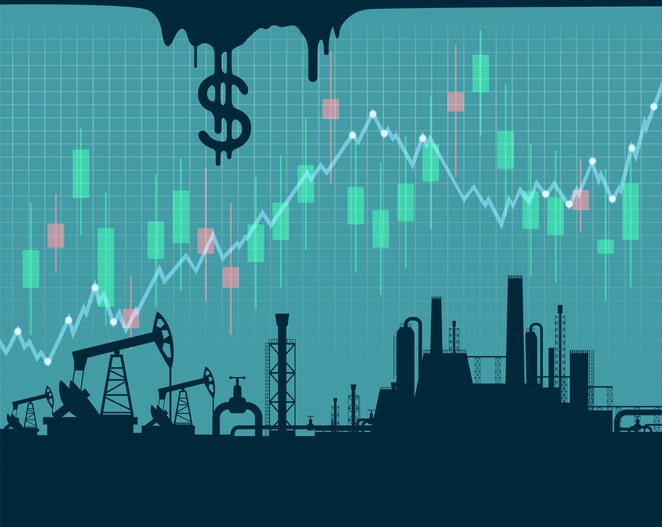Oil Prices Down Amid Coronavirus Infection Surge

There are fears that a record rise in global coronavirus infections could halt the recovery of demand levels for fuel worldwide, pushing down global oil prices despite continuing tight supply levels.
Demand Expectations
Up until now, oil prices had been propped up by the resumption of increased economic activity worldwide as governments had begun to ease lockdown restrictions that brought the world to a near-standstill in April and May.
Producers have also been keeping supply levels tight; Canada and the US dropped the numbers of active oil and gas rigs to record low levels last week.
Meanwhile, OPEC+ – the Organization of the Petroleum Exporting Countries and its allies, plus Russia – is still mulling over whether to keep its 9.7 million barrels per day supply reduction in place for August.
OPEC
If they were to do so, this would be the fourth month of supply cuts for OPEC+. But although no decision has yet been made by the OPEC+ group, the member countries of Iraq and Kazakhstan have already indicated they will comply with any agreed production reductions.
Another indication of tightening supply is the price of Brent crude futures – oil for delivery now is currently more expensive than oil for later delivery, a situation known as backwardation.
But the main reason making oil markets jumpy is the record jump in global cases of COVID-19 announced at the weekend by the World Health Organization.
Americas
Although most European countries seem to be over the peak of the virus, the pandemic’s epicentre is now in North and South America, and this could have a major global impact.
According to Michael McCarthy, chief market strategist at CMC Markets:
“The potential economic damage of a new round of COVID-19 countermeasures will likely contain any investor enthusiasm.”
In addition to the increased infection rates in the Americas, other areas of the world have seen regional outbreaks – Beijing in China and the state of Victoria in Australia are notable examples – and these spikes have resulted in movement controls being imposed on the population.
The consequence could be even further drops in demand for global oil, and consequently continued downward pressure on prices.